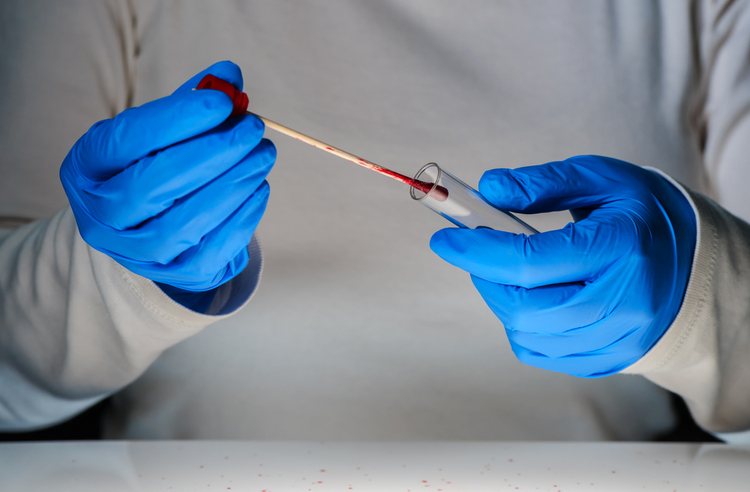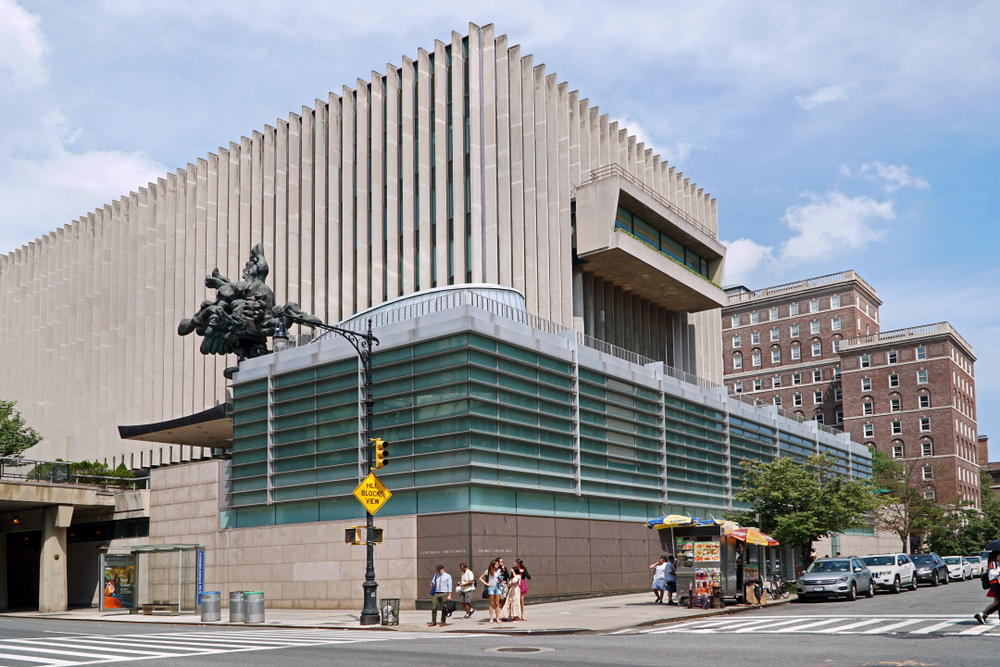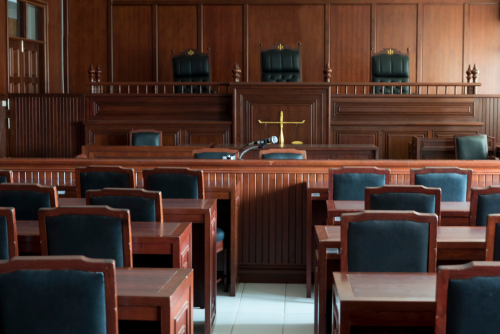DNA issues ‘cast a pall’ over murder conviction, warranting SCOTUS review, ABA amicus brief says
U.S. Supreme Court
DNA issues ‘cast a pall’ over murder conviction, warranting SCOTUS review, ABA amicus brief says
March 28, 2024, 9:02 am CDT
The U.S. Supreme Court should once again consider the case of a Texas death row inmate whose conviction was based on DNA evidence tested by a lab that “consistently and egregiously mishandled DNA evidence,” the ABA has said in an amicus brief. (Image from Shutterstock)
The U.S. Supreme Court should once again consider the case of a Texas death row inmate whose conviction was based on DNA evidence tested by a lab that “consistently and egregiously mishandled DNA evidence,” the ABA has said in an amicus brief.
The ABA filed the March 27 brief in the case of Areli Escobar, according to an ABA press release. It is the second time that the ABA has urged the Supreme Court to hear the case.
The ABA filed its first amicus brief in August 2022, arguing that Escobar’s conviction “ought not stand as a matter of fundamental fairness.” The brief cited findings by a state habeas court, which found that DNA evidence in Escobar’s case was “false, misleading and unreliable.”
The lab’s mishandling of DNA evidence was so egregious that it was shut down by the state, the first ABA brief said.
According to SCOTUSblog, in January 2023, Supreme Court vacated a Texas Court of Criminal Appeals decision that upheld Escobar’s conviction and remanded. The Supreme Court said the Texas court should consider the state’s position supporting Escobar and confessing error in the case.
The Texas Court of Criminal Appeals, the top criminal court in Texas, once again upheld the conviction in September 2023.
The Texas Court of Criminal Appeals said it was aware that the state was no longer defending Escobar’s conviction when it originally ruled against Escobar, and nothing presented to the court since then changes its conclusion that there was no due process violation. There was no showing that lab deficiencies affected Escobar’s DNA evidence, the court said.
Evidence shown to be false—statistical errors in DNA probability estimates—isn’t material because Escobar would have been convicted anyway, the court had concluded.
The victim in the case, 17-year-old Bianca Maldonado Hernandez, had 46 stab wounds. She lived in the same apartment building as Escobar. Escobar’s girlfriend testified at trial that she called him in the early-morning hours on the date in question, and she could hear moaning and screaming in the background. The girlfriend had concluded that Escobar was having sex with someone and had complained to her friends about it.
The Texas Court of Criminal Appeals cited the girlfriend’s testimony, along with shoe-print evidence, Escobar’s appearance after the offense, and Escobar’s fingerprint on a lotion bottle near the victim’s body,
According to the ABA’s new brief, the Texas Court of Criminal Appeals “improperly downplayed the inculpatory effect of the false DNA evidence, and retroactively attempted to rehabilitate certain pieces of evidence” to support the conviction.
“The DNA errors go to the heart of the reliability of the evidence in this case and cast a pall over [Escobar’s] conviction and sentence,” the new ABA brief said.
DNA evidence found to be false and unreliable “ran afoul” of at least four parts of the ABA Standards for Criminal Justice: DNA Evidence, according to the new amicus brief.
Those standards say labs should maintain accreditation through “scrupulous adherence to scientific best practices,” should collect and keep evidence in a manner that prevents contamination, should implement scientifically valid protocols, and should take steps to minimize bias in the interpretation of DNA test results.
In Escobar’s case, the brief said, lab employees provided misleading testimony that gave the impression they had a system of checks and balances. In addition, the lab had multiple instances of evidence contamination, employed unqualified staff members who used “indefensible” protocols, and failed to minimize bias in interpreting test results.
Lab contamination affected samples from Escobar’s shoe and his sister’s Mazda vehicle, the new ABA brief said.
“It ought to be uncontroversial that when critical evidence in a capital murder trial was based on scientifically unreliable methods and processes of dubious validity, the resulting conviction cannot stand,” the ABA brief said.
See also:
The New York Times: “In Death Penalty Cases, a Texas Court Tests the Supreme Court’s Patience”






